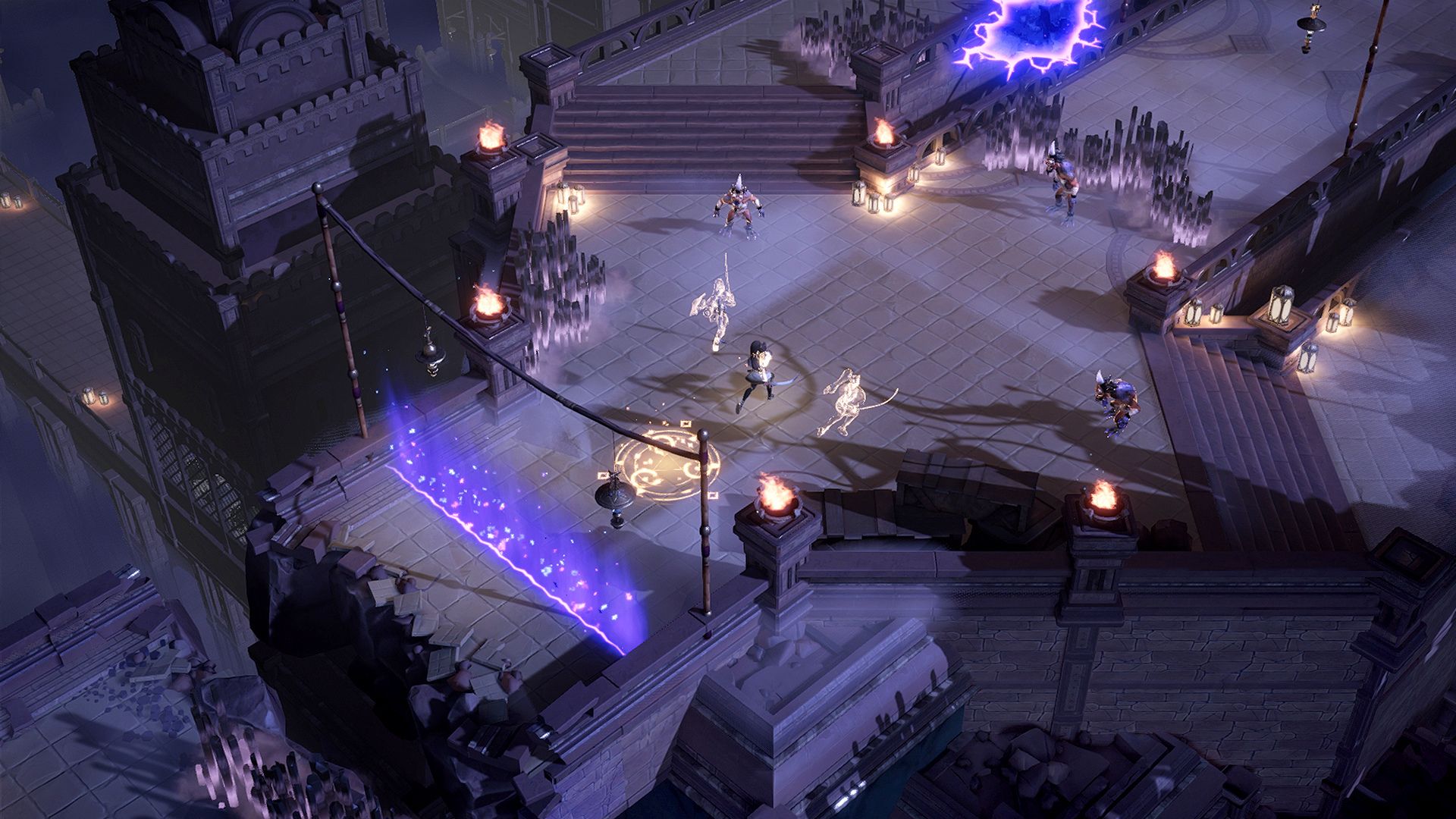Hands-on: Lysfanga The Time Shift Warrior is Hades with time travel
Alternatively “It’s like Groundhog Day but for murder”

Dash, slash, crash, and bash. There are things you can do in Lysfanga the Time Shift Warrior that don’t finish in -ash, but I’m not really interested in them. The hack and slash brawler is one of those perfect smaller games, it’s simple to play, feels great in motion, and has one core concept that marks it out as something special, and what could be better?
Lysfanga’s fun twist? When you enter more arenas it’ll feel like you’re playing Hades or The Binding of Isaac, charging around trying to kill enemies and survive. But if you run out of time, die or hit the rewind button on the controller, you’ll spool back to the start of the fight and set off again, joined this time by a ghostly version of yourself that’s taking the actions you just took.
Suddenly, this is less about mechanical skill - although that’s still a key part as the challenge ramps up immediately even during this combat-focused preview build - and it’s more of a puzzle game as you create a clone solely to hit a switch that will allow a future version of yourself to access a door at just the right time to get in and kill a group of monsters, before pledging the rest of this time loop to joining five time-cloned versions of yourself in fighting a giant monster before you go back in time and do it all again.

Whoever came up with the pitch of “Hades but you’re playing as a collection of those time trial ghosts from PS1-era rally games” is a genius and I hope they feel suitably pleased with themselves because when I played it I could barely put it down. During my preview slot, I missed out on lunch because my handler enthused about my time-traveling murder abilities, was happy to stay back and let me play more in an empty room. Despite the fact you can literally control time, you have a limited amount of loops, meaning you can put yourself into a situation that has you fail an arena and have to start from scratch, or just has you sighing and reaching for the restart arena button anyway.
That sticking power is mostly down to its reference points: developers Sand Door Studio claim they weren’t inspired by any other games, but you can feel Supergiant Games’ influence everywhere, particularly Hades and Bastion. It’s in every fluid whack, the glowing ball of energy you can unleash to trash enemies, and the way you can dodge anime-style around an arena. But Lysfanga has a style all of its own, and it’s hard to get across in a preview quite how smooth that movement feels, and the grin that will play across your face as you distract an enemy into the path of a dangerous explosion you might have caused several loops ago.
Combat is a particular joy. While I was only given time with one of the game’s weapons, I’m told there will be three that you can change between that will all feel distinct. I didn’t have an issue using just one, twirling through enemies as projectiles and attacks rain down from all sides. Pair this with a powerful spell on a long cooldown that can blow up groups of enemies, and I didn’t feel like my toolset was lacking, instead that pared-back collection of weaponry just focused the mind.
It’s unclear from this hands-on how deep the game can go. Rather than a roguelite structure it seems to be a more traditional campaign, with each arena having a par time for players to beat if they want to challenge themselves. If my hands-on is anything to go by, most players won’t be able to stop themselves.
Sign up for breaking news, reviews, opinion, top tech deals, and more.
To keep up to date with what's being announced this summer, check in with all of our E3 2023 coverage.

Jake Tucker is the editor in chief of TechRadar Gaming and has worked at sites like NME, MCV, Trusted Reviews and many more. He collects vinyl, likes first-person shooters and turn-based tactics titles, but hates writing bios. Jake currently lives in London, and is bouncing around the city trying to eat at all of the nice restaurants.